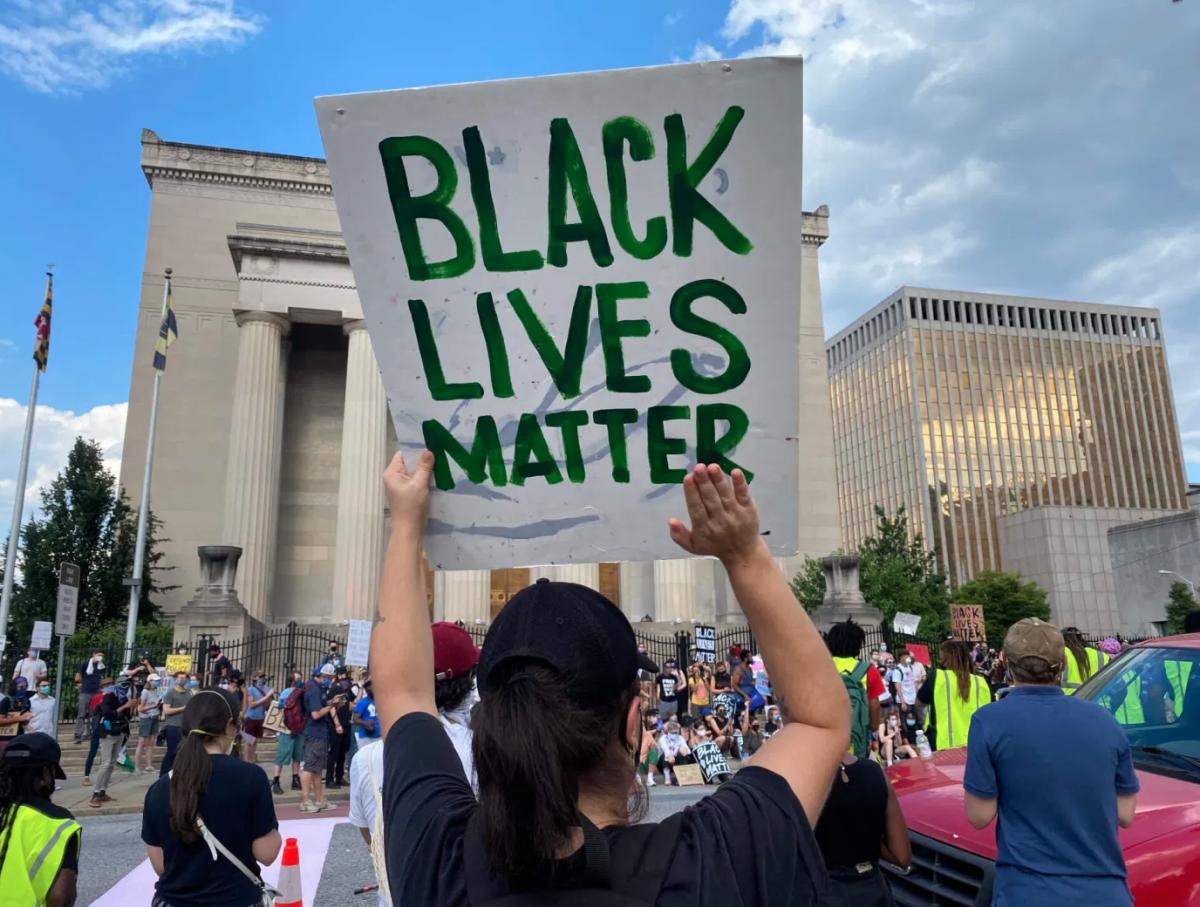As Maryland legislative committees craft comprehensive police reform packages for the 2021 General Assembly session, they appear to have significant support from voters, according to a recently-completed poll.
The Goucher College Poll, conducted in late September and early October, found strong support for a variety of measures designed to crack down on police violence and seek more accountability for law enforcement:
- 87% of Marylanders surveyed said they support creating a record of police misconduct cases that would be available to the public and other law enforcement agencies, while 10% said they would oppose such a requirement.
- 85% said they support requiring that criminal misconduct charges against police officers be investigated by an independent state prosecutor rather than by an internal police affairs unit, while 10% said they were opposed.
- 82% of poll respondents supported requiring police officers to undergo racial bias training, while 17% said they opposed a requirement.
- 79% supported creating uniform statewide de-escalation and use-of-force policies for all Maryland police departments to follow, while 16% said they opposed.
- 79% also supported increasing funding for police departments to hire more or better trained officers ― a proposal 19% opposed.
- 60% said they support laws banning police from using chokeholds or strangleholds when making an arrest, while 35% opposed.
- 54% said they support reducing the budget for the police department in their community and shifting the funds to social programs related to mental health, housing, and education, a concept that 43% opposed.
“Maryland residents are largely supportive of key police reforms that are currently being discussed by state lawmakers and have dominated our national discourse,” said Mileah Kromer, director of the Sarah T. Hughes Field Politics Center at Goucher College, who worked with students to craft poll questions and conduct the poll. “Some of these proposals, like creating statewide use-of force policies and requiring police officers to undergo racial bias training, earn support from majorities of Democrats and Republicans. But there’s a mixed message on police budgets.”
Just 28% of those surveyed said they support the movement to “defund the police,” while 68% opposed it.
Two-thirds of survey respondents ― 66% ― said they viewed the police favorably, while 30% said they had an unfavorable view of law enforcement. Among Black Marylanders, 54% said they viewed the police favorably, while 41% said they viewed the police unfavorably. Among white Marylanders, police had a 73% to 24% favorable to unfavorable rating.
Sixty-five percent of residents said they view the Black Lives Matter movement favorably, compared to 29% percent who viewed it unfavorably. Among Black Marylanders, the numbers were 85% favorable and 11% unfavorable. Among white Marylanders, 56% viewed the movement favorably, compared to 38% who viewed BLM unfavorably.
The poll of 1,002 Maryland adults was taken Sept. 30-Oct. 4 and had a 3.1-point margin of error. Some of the questions in the poll surveyed 918 registered voters and carried a 3.2-point error margin.
But policing is not the top issue on the minds of Marylanders. Asked an open-ended question about the most important issue facing the state today, 30% cited the COVID-19 public health crisis, 22% said economic issues, 8% said education, 5% said health care generally, another 5% said politics and political leadership, while 4% said crime/criminal justice/policing. The environment and racism each were mentioned by 3% of Maryland adults.
Sixty-three percent of Marylanders said they believe the state is heading in the right direction ― a surprisingly rosy scenario compared to national polls. Thirty-one percent said the state is on the wrong track. In February ― before the coronavirus outbreak ― the right track-wrong track numbers for the state were 49% to 32%.
Gov. Lawrence J. Hogan Jr. (R) continues to rack up high numbers in the Goucher poll. Seventy-one percent of adults surveyed ― including 69% of Democrats ― said they approved of the job Hogan was doing. Twenty-three percent said they disapproved, while 5% said they did not know and 1% refused to answer.
In February, Hogan’s job approval rating stood at 62%; 20% of Marylanders disapproved and 17% said they did not know.
Hogan is viewed a lot more favorably than the Republican Party. The GOP has a 35% to 61% favorable to unfavorable rating, compared to a 54% to 43% favorable to unfavorable rating for Democrats. That roughly comports with voter registration statistics in Maryland: As of a month ago, 55% of registered voters were Democrats while 25% were Republican. The rest belonged to smaller political parties or were unaffiliated.
In the Goucher poll, 26% of registered voters said they considered themselves conservative, while 44% described themselves as moderate and 28% called themselves progressive.
The first installment of the latest Goucher poll, released late last week, was on the presidential horse race in Maryland and measured voters’ attitudes on in-person vs. mail-in voting.
The third and final installment, to be released Tuesday morning, deals largely with COVID-19 in Maryland and the government response.
By Josh Kurtz



Write a Letter to the Editor on this Article
We encourage readers to offer their point of view on this article by submitting the following form. Editing is sometimes necessary and is done at the discretion of the editorial staff.